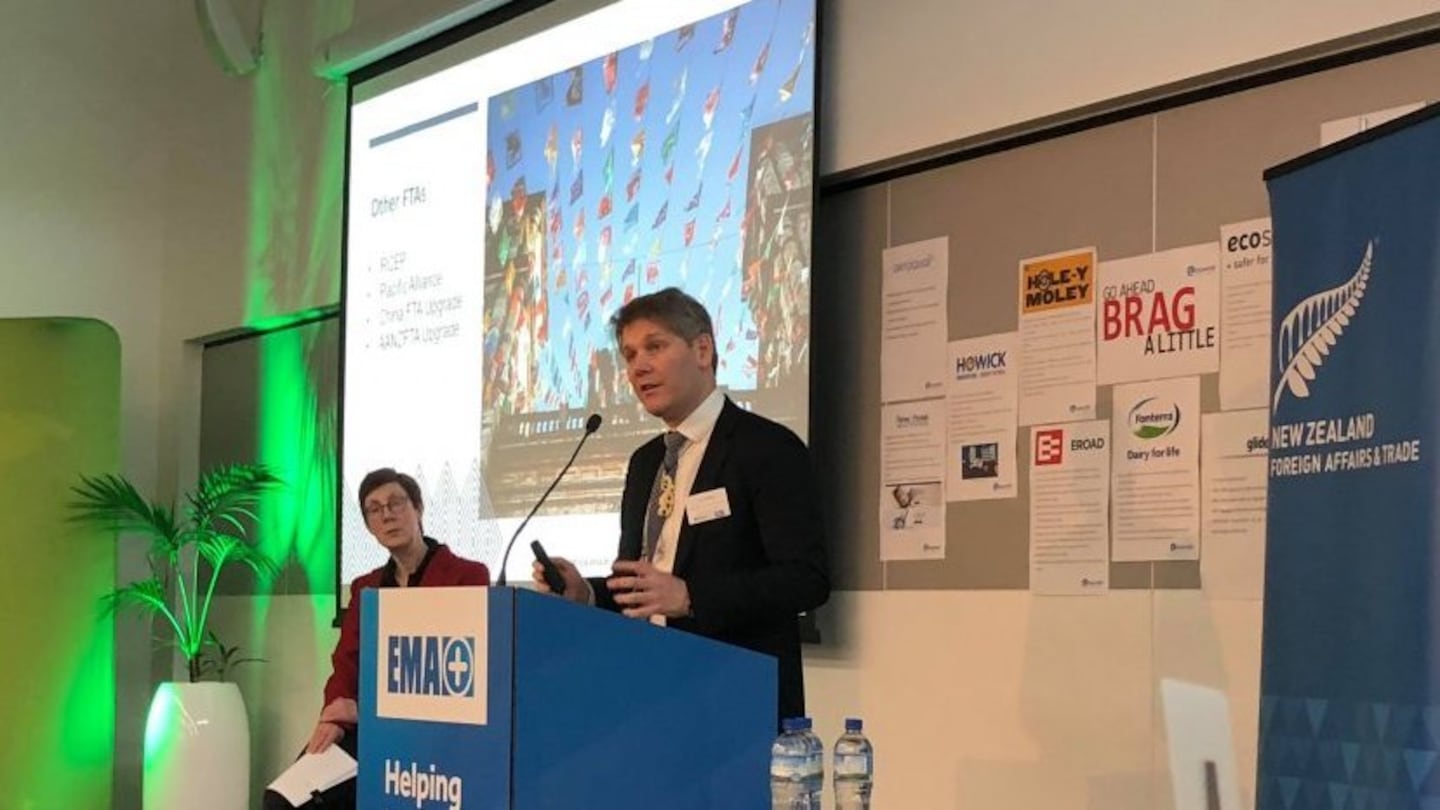New Zealand is currently in negotiations with the European Union (EU) over a potential Free Trade Agreement (FTA).
While Treaty of Waitangi commitments are a ‘non-negotiable’ part of New Zealand’s recent FTAs according to the Ministry of Foreign Affairs (MFAT) it appears New Zealand’s stipulations around protecting Māori interests are proving to be something of a learning curve for European negotiators.
Comprised of 28 states, the EU is the world’s largest trading block and was described as a “missing link” in New Zealand’s network of FTAs by MFAT’s Principal Advisor, Trade and Economic Group, Michelle Slade, in a public presentation on the ongoing negotiations in Tāmaki Makaurau today.
Slade and Head of the Trade Policy Engagement Unit Affairs John Riley (Te Rarawa and Te Aupouri) each gave brief presentations on the negotiations, also discussing Brexit, the CPTPP and the progress of New Zealand’s FTA network globally.
The pair stressed the ‘progressive’ nature of New Zealand’s FTA negotiations, which MFAT defines as “an agreement that sets a global benchmark on social and environmental priorities ... climate change, gender equality, indigenous rights, labour standards and sustainable and inclusive economic growth.”
Despite confirming an “agreement upfront” regarding protections for Māori under the Treaty, Slade framed the ongoing negotiations around Māori interests under the rubric of a new ‘Trade for All’ policy which the government has developed, with public consultation, to promote sustainability and inclusivity in trade objectives.
'Trade for All' takes its lead from an EU strategy of the same name which claims to focus on on inclusivity in gender, transparency, people in developing nations and worker and consumer rights. However, New Zealand’s version of the ‘Trade for All’ agenda appears to have prompted discussion during negotiations and a need for detailed explanation of our bicultural framework to European partners.
Other major matters under discussion in the negotiations include Geographical Indications (GIs) which relate to naming rights of certain goods representing geographical regions, which may responate with Māori business experience with in the mānuka honey industry, for instance. The EU reportedly has around 2,100 such names on its request list, mostly relating to wines.
Intellectual copyright issues around toi Māori tikanga and whakapapa will also likely be discussed with MFAT stating that "New Zealand is committed to achieving provisions that safeguard our rights to protect genetic resources, traditional knowledge and folklore".
Careful navigation is also required for what Slade referred to as the “agricultural sensitivities” of the European Union, which spends vast amounts on protectionist agricultural measures under the Common Agricultural Policy (CAP). Negotiations are likely to be fraught given New Zealand's reliance on dairy exports.
MFAT has held a number of consultation hui with Māori business and members of the public and say they’ll “continue to engage with Māori groups throughout the negotiation process to ensure that Māori interests are promoted and protected.”
Read more about Māori interests under a European Union FTA here.

